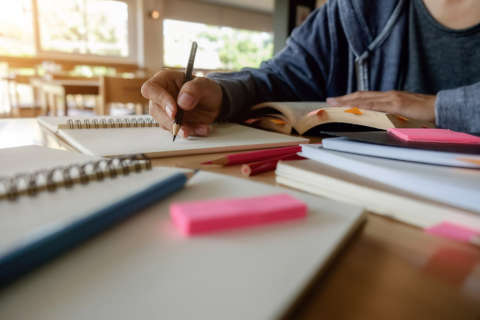WASHINGTON — New year, new organizational habits — at least, that’s what you hope your kids are thinking, too.
But rather than thinking of organization as a monumental, impossible New Year’s resolution, it’s a goal that can be achieved with small but consistent changes.
WTOP spoke with former public school teacher Ann Dolin, with Educational Connections Inc., about ways parents can help their kids develop better habits to help them in school.
1. ‘Keep an organized backpack’
Since kids aren’t using their desks or lockers nearly as much as they used to and don’t have as many books, Dolin said, “It’s really important for kids to keep an organized backpack.”
To help them, Dolin advised using the “KAT” system.
“K is for ‘keep:’ Help your child first take out all of their materials out of their backpack and then determine, what are the things that your child needs to keep?” she said. This usually means keeping work they’re currently working on in the bag.
Next: A is for “archived,” which Dolin explained as, “What are the things they may need later on that they don’t necessarily need now.” For example, keeping old tests and study guides around because teachers will often use questions from them.
And, lastly: T is for “toss.” What are things your child can get rid of?” Dolin asked, and those things include old homework assignments they won’t need to reference anymore.
2. Integrate new habits with activities your family already does
To develop a new habit, Dolin said, “Tie it into something that you already do.”
“So, let’s say in your family, every Sunday night you have a family dinner. At the end of the family dinner, it can be your ‘clean sweep time’ — or your ‘KAT time’ — your ‘backpack clean out time,’ where everybody’s in on the act of getting organized,” she said.
It doesn’t just have to be the messy child, Dolin emphasized, but even the adults in the family should be involved. For 15-20 minutes, everyone in the family is either cleaning out backpacks, or sorting through folders or cleaning a study area. Neatness becomes a habit, not just a one-time act.
“Everybody is in on getting organized.”
3. Ask questions that make your child think
Finally, when your child comes home from school, think of better questions than, “Do you have any homework?” That question “doesn’t require any critical thinking,” Dolin said.
“Instead, it’s better to ask our kids powerful questions,” she added. “So, in this case, it might be, ‘What are your priorities today when it comes to homework?'”
Questions like that will help kids organize what they need to do first, second, third, etc. And even if they don’t verbalize their priorities, it gets them thinking about what they need to do.








